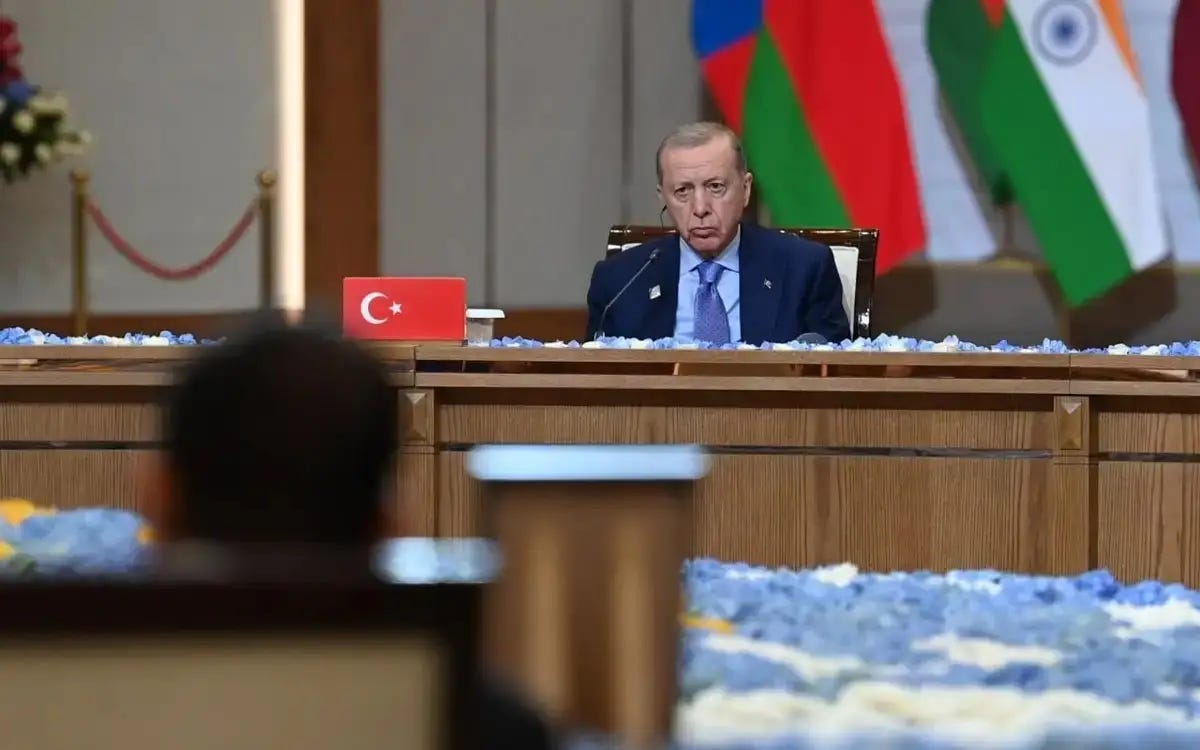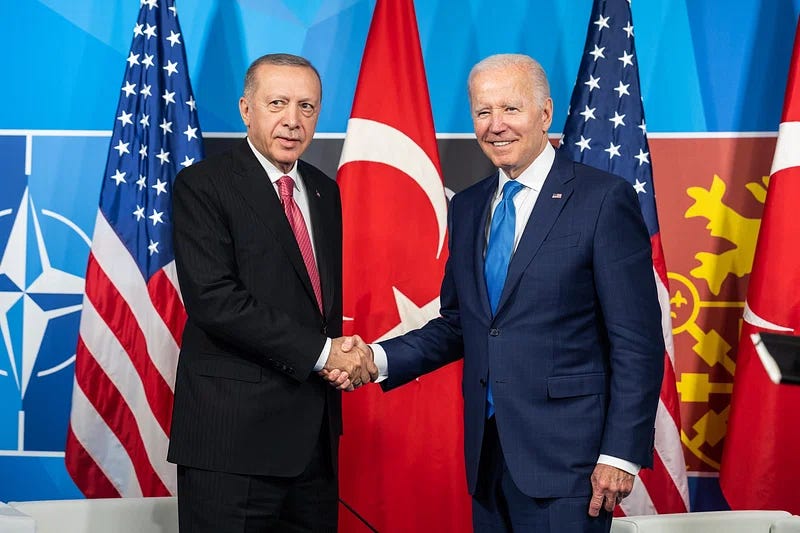Turkish Approach Towards BRICS: Is It Genuine?
Is Turkey's interest in BRICS sincere, or is it a calculated move due to its deteriorating relations with the West?
In recent years, Turkey has shown a growing interest in joining BRICS. This interest is underscored by Ankara's geopolitical maneuvering and economic strategies. The question arises: Is Turkey's approach towards BRICS genuine, or is it a strategic pivot in response to strained relations with the West?
Shifting Alliances and Geopolitical Realignments
Turkey's geopolitical landscape has been marked by fluctuating alliances and diplomatic recalibrations. President Recep Tayyip Erdogan's administration has often found itself at odds with traditional Western allies, particularly the United States. A recent article by Elena Supónina highlights that Turkish-American relations are currently fraught with tension. President Erdogan's displeasure with American policies, both bilaterally and on the international stage, was evident during his recent visit to Washington, where he voiced significant dissatisfaction.
The friction stems from multiple issues, including the U.S.'s failure to halt Israeli operations in Gaza and delays in fulfilling a $23 billion F-16 fighter jet deal, pushing delivery dates to 2028. Such delays have been attributed to Lockheed Martin's existing commitments, a move seen as a strategic slight by the Erdogan administration. These tensions have led Turkey to explore alternative alliances and seek more balanced international relationships.
The Appeal of BRICS
BRICS represents a consortium of countries that have significant economic and political clout on the global stage. Turkey's interest in joining BRICS is not merely about shifting alliances but also about seeking a platform that aligns with its aspirations for a multipolar world order. The coalition's member states collectively represent a significant portion of the world's population and economic output, making it an attractive bloc for countries like Turkey seeking to diversify their international partnerships.
Supónina notes that Turkey's ambitions extend beyond BRICS. Erdogan has also expressed a desire for full membership in the Shanghai Cooperation Organization (SCO). This desire was articulated not only in previous years but more recently during a NATO summit, where Erdogan's statements carried a tone of urgency and determination. This indicates a strategic move by Turkey to align itself with non-Western blocs that promise more equitable partnerships.
Economic Imperatives
Economically, Turkey stands to gain substantially from closer ties with BRICS nations. The country's economy, though resilient, has faced challenges, including high inflation and a volatile currency. Integrating with BRICS could provide Turkey with access to new markets, investment opportunities, and technological cooperation. Furthermore, BRICS countries have shown a willingness to support one another through financial mechanisms like the New Development Bank, which could be beneficial for Turkey's economic stability and growth.
Moreover, Turkey's strategic location as a bridge between Europe and Asia makes it a valuable partner for BRICS, especially in the context of China's Belt and Road Initiative. This initiative aims to enhance regional connectivity and could see Turkey playing a pivotal role in facilitating trade routes and infrastructure projects.
Political and Diplomatic Considerations
Turkey's potential membership in BRICS also carries significant political implications. It would symbolize a departure from its traditionally Western-oriented foreign policy, reflecting a more independent and assertive stance on the global stage. This shift is not entirely new; Turkey has previously demonstrated a willingness to pursue a more autonomous foreign policy, as seen in its military operations in Syria and its purchase of the Russian S-400 missile defense system, which led to sanctions from the U.S.
Supónina's analysis suggests that Turkey's frustrations with NATO and the U.S. are not just about specific grievances but also about a broader dissatisfaction with Western-led international structures. Joining BRICS would be a statement of Turkey's desire for a new kind of global governance where emerging economies have a greater say.
Genuine or Opportunistic?
So, is Turkey's approach towards BRICS genuine? The evidence suggests a mix of both genuine interest and strategic opportunism. On one hand, the alignment with BRICS fits into Turkey's broader goals of economic diversification and geopolitical rebalancing. On the other hand, it is also a response to the challenges and frustrations it faces within the Western bloc.
Turkey's moves towards BRICS and the SCO can be seen as part of a larger strategy to position itself as a key player in a multipolar world. This strategy includes leveraging its unique geographical position, economic potential, and political influence to carve out a more prominent role on the global stage.
In conclusion, Turkey's approach towards BRICS is a calculated one, driven by both genuine aspirations and strategic necessities. As global power dynamics continue to evolve, Turkey's potential inclusion in BRICS could significantly impact the geopolitical landscape, underscoring the importance of emerging economies in shaping the future world order.






Turkish approach to BRICS is currently positive because it is tired of waiting to be accepted by the EU, it has been waiting for decades in vain and understands its declining influence (it’s an organ that fits only Europe besides). It is also tired of getting lectured on human rights and seeing other allies supporting Kurdish separatists, which is why it tried to play it hard on Sweden’s NATO bid. On the other hand, it is a NATO member state, therefore it will likely not align with multilateral interests in security issues and that is why I do not think it will enter BRICS soon.
I agree with your analysis of Turkey’s motives. And btw, thanks for your Substack. It reminds us that there’s another more than half the world out there constituted through BRICS, BRICS+, and the SCO, and they’re not here to incite wars, like the US/UK/NATO/EU bloc.